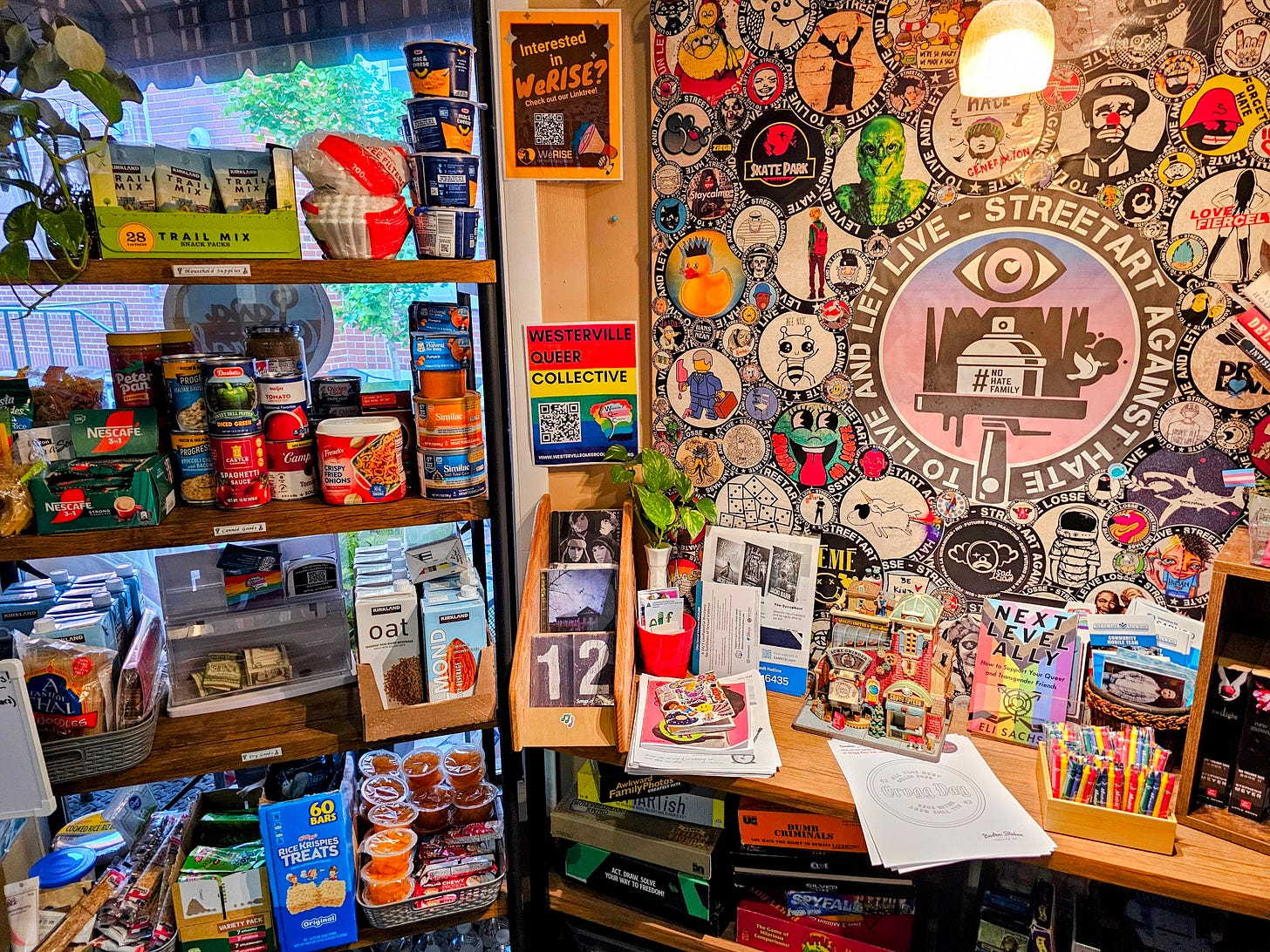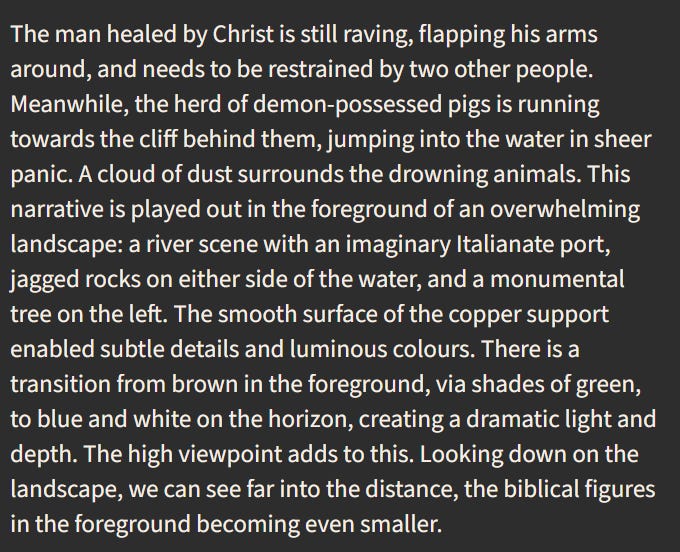Second Sunday After Pentecost: On the "demons" of war & addiction
Will you take back the transformed outcast?
I write at 10:35 pm on Saturday evening. Before I dive into what’s on my mind - what’s likely also on your mind at this very moment - here’s a couple of photos from Friday - the first day of Summer. May these help us remember the beauty and goodness in our world.
Friday evening, my wife and I took a lovely stroll through one of the greatest little parks anywhere - Inniswood Metro Gardens - conveniently only a few minutes’ drive from our home.
Afterwards, we stopped for a coffee and conversation at the best community-focused coffee shop anywhere - Java Central. This “resource wall” in the shop includes a take-what-you-need foodbank.
OK. From photo-zen nourishment for the soul to the news that’s been breaking all evening:
I am livid that a rogue, law-less, aspiring dictator made this unnecessary act of war. I am concerned that lives, especially of American servicepeople and civilians may be taken as Iran has pledged retaliation. Only Congress can begin a war, so what tRump did was unconstitutional and thus must be met with the strongest tool that Congress has -
[International Business Times - 6/21/25]
There’s much more that I want to say about the precipice upon which the U.S. and wider world teeters. And I’m tempted to switch my attention now (at 10:54 pm, Saturday) to the many live streams taking place on Substack in which journalists and others I respect are processing this reckless action by a dangerous, incompetent, authoritarian regime.
Ceasing this writing on the Sunday gospel which nourishes me (and hopefully you as well) in order to feed my anger through consuming (rather than producing) content, is not healthy for me. It wouldn’t be helpful as it won’t grow the good in me or us.
So, I let these current events go for now and I share the liturgical gospel for the Second Sunday After Pentecost from this translation:
First Nations Version: An Indigenous Translation of the New Testament by Terry W. Wildman
[From the Visual Commentary on Scripture]
Years ago, I listened to a recording of a talk by Father Richard Rohr about this vivid gospel the lectionary gives to us today. He interpreted this story as an introduction to a talk on his book in which he explores the Twelve Steps of Alcoholics Anonymous and myriad other recovery programs.
The violent, self-destructive actions of the man “possessed by a demon” can be likened to what an alcoholic or addict does when consumed by the obsession for their fix and/or enthralled by their “high.” The villagers reject the man and ensnare him in chains. Untreated addicts, bound by their addiction(s) often engage in actions which are devastating to their family and wider community.
[From the Visual Commentary on Scripture]
Jesus liberates the man from his affliction by sending the demons into pigs grazing nearby. The possessed swine stampede down the hill and drown themselves in the lake. The swine-herders are “scared to death and run away.” They tell the villagers what they witnessed. Not surprisingly, the villagers want to see for themselves.
When they find the man “clothed and in his right mind.” Luke, teller of this tale, notes: “This filled the people who were there with awe and fear.”
[From Visual Commentary on Scripture]
The part of the story which strikes me is what happens next. Rather than praise Jesus for the miracle worked by the power of God within him, the villagers do the opposite. They “begged Creator Sets Free (Jesus) to go away from their land.”
At first glance it appears they react and reject Jesus out of fear. I wonder though if there was also anger and resentment as well. Surely the swine-herders would be livid about the loss of their investment due to Jesus’ action. For the wider villagers, I wonder if they hold resentment that Jesus is sending back to them a man who they’d not treated with care or dignity.
Perhaps they were concerned the man would seek some form or revenge or retribution against them. More likely, they didn’t want to do the work of reintegrating this outcast back into the life of the village. The man had been transformed and now they’d need to change too.
The wisdom of recovery notes that the family system in which an active alcoholic or addict lives is like a mobile:
Each family member, like the circles in the image above, finds a balance and a feeling of stability in the predictability of the alcoholic’s behavior. When the alcoholic seeks the healing change of sobriety, it’s like what happens if you were to pull down on the circle on the far right of the image. The entire structure of the mobile shifts and what felt familiar and static is disrupted and different. Alanon exists to aid those family members both when the alcoholic is in active addiction and especially when the addict gains sobriety and the family dynamic shifts.
The story ends with the formerly possessed man “begging” Jesus to take him along with the disciples. Maybe the man truly wanted the adventure of the unknown path Jesus could show him. More likely I suspect, the man didn’t relish returning to reside, albeit in a new way, in the village. He saw how much the relational system of the village was disrupted by his healing and he’d rather avoid this challenge than courageously confront it.
Writing this reflection has helped calm my anger about the war an unlawful despot has recklessly begun. Listening to music by Salt of the Sound has helped to lower my blood pressure.
The title of this tune feels apt for this moment:
For more about Salt of the Sound, visit their website.



















